A connection to our Palestinian homeland spanning generations
Posted in: peopleofanera
The paternal side of my family comes from Palestine. My great grandparents, who were from Nazareth, sent two of their sons to live in the United States in the early 1900s in order to avoid conscription into the Turkish army – as Palestine was then part of the Ottomon Empire. One of those sons was my grandfather, Charles (Namy) Hackim, and he ended up living in the Detroit area of Michigan.
Before moving to the US, my grandfather married my grandmother Cokab Sowan, whose family was from Acre. Their four surviving children (their first child died as an infant), born and raised in the US, were Anne, Violet, Albert (my father) and Genevieve. When my father was only seven, my grandparents divorced. So my father grew up with his mother, uncles and his maternal grandmother while his sisters were with their father’s family members. My father reunited with his sisters when he went to college and then medical school in Detroit, where his sisters lived.
After becoming a doctor he enlisted in the US Army, serving in WWII in the Philippines. After the war he married my mother and moved to California to raise a family.
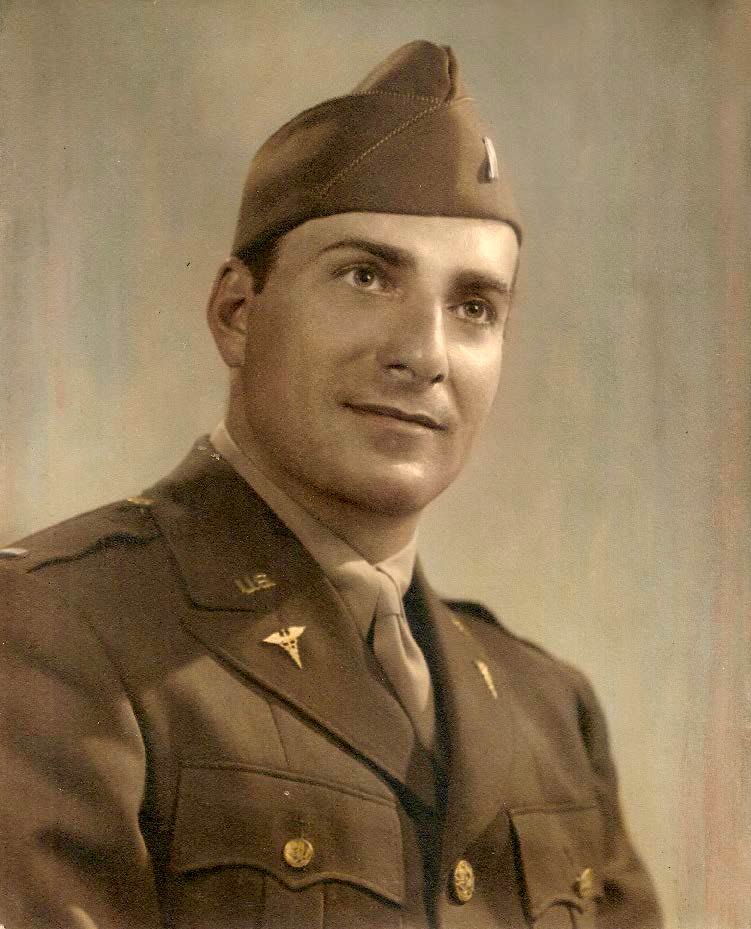

My three aunts, who remained single and were fiercely independent, taught us a lot about our Palestinian culture. They were all career women. Two worked as buyers for a large retailer in New York. The eldest, Anne, lived and worked in Flint, Michigan, and started giving donations through her church to help Palestinian refugees in 1948. I found letters from Palestinian refugees sent to my aunt, describing terrible scenes of people being shot and killed, fleeing with nothing but their lives. They were all very grateful for the donations and help they received from my aunt’s efforts through her church.
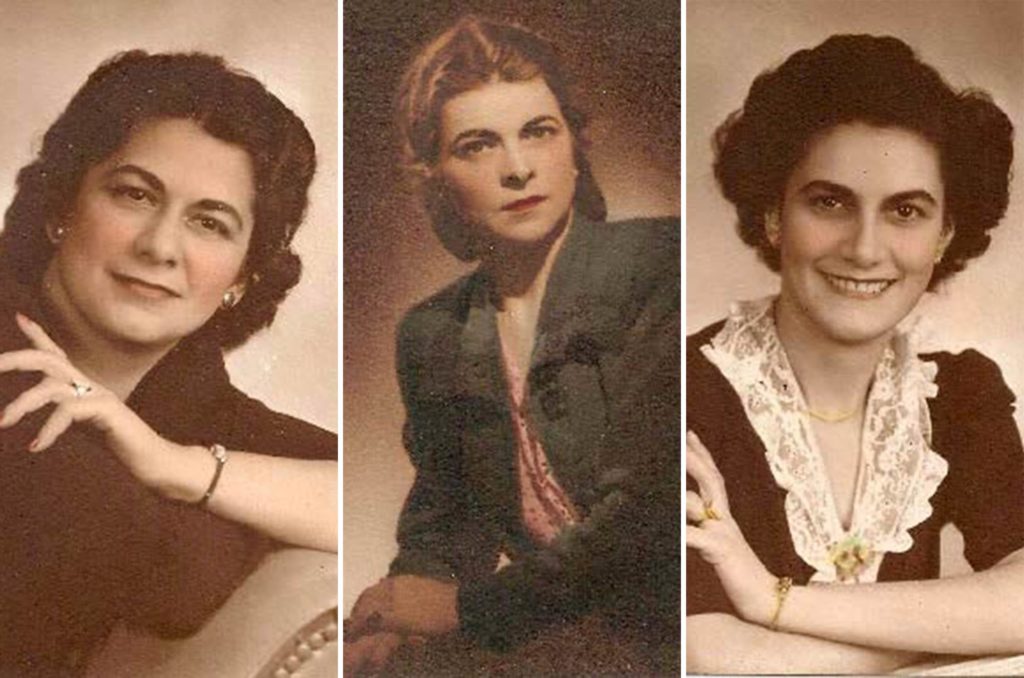

My aunts and their cousins visited Palestine throughout the 1950s, ’60s and ’70s and they kept our connection with our homeland going. When they’d come to visit us in California, we’d move all the furniture in the living room out of the way so we could dance dabke. When they visited, they would do all the cooking and often let us help. Once when they returned from a trip to Nazareth, my aunties brought back some culture for making leben (yogurt) and we kept that culture alive for many years.
My father also made a point of learning how to make Arab food from his grandmother. He would frequently write to one of his cousins for recipes. So, when I was growing up, we often enjoyed his amazing kibbeh, baklawa, Syrian bread, rolled grape leaves and stuffed squash.
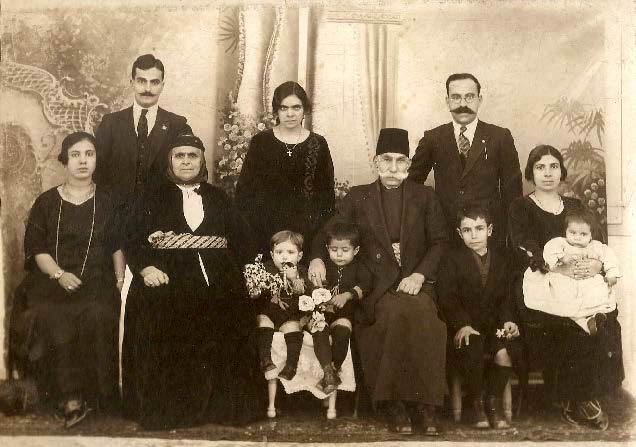

When my Aunt Genevieve died in 2002, it was her wish that any donations be made to Anera. That’s when we really got interested in Anera’s work.
My husband and I focus most of our giving on education, mothers and children. That’s why building a preschool with Anera was a perfect fit.
Visiting Palestine for the First Time
My daughter Claire, Jim and I went on a trip to Palestine, our first ever, in July 2019. We were amazed to see how great the needs are there. But we were also really impressed with the strength and resilience of the Palestinian people. They are tough. They are survivors.
With Anera, we visited a preschool currently under construction in the Nablus area. We also went to the amazing Dar Salah Women’s Center that Anera built near Bethlehem. The women there are hosting workshops and creating beautiful crafts for sale. They brought out a feast of wonderful foods they made in their catering kitchen. We also went to see Anera’s half-built school in Jaba’a. Construction was halted when USAID stopped funding work in Palestine.
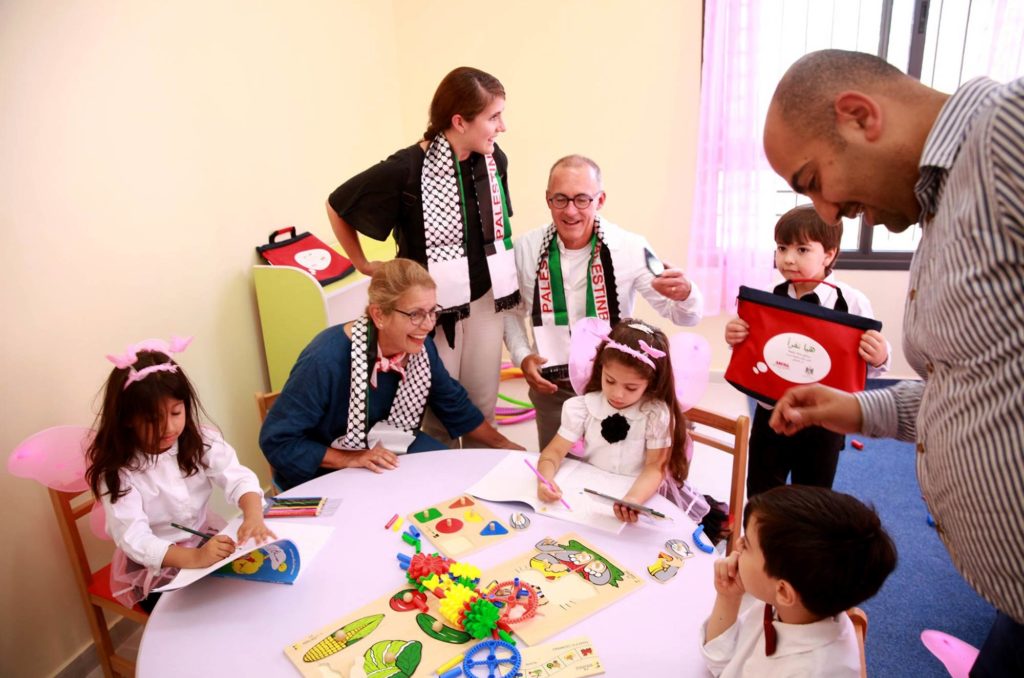

The highlight of the trip was the day when the preschool we funded was inaugurated. It’s in the small town of Ni’lin. It was a wonderful event and reception. The children are so excited about their new school! We learned that the preschool-aged children in the next town over don’t have a school to attend. So, the teachers’ room in the new preschool has been converted into a classroom so that those children will be able to benefit from the new facilities as well.
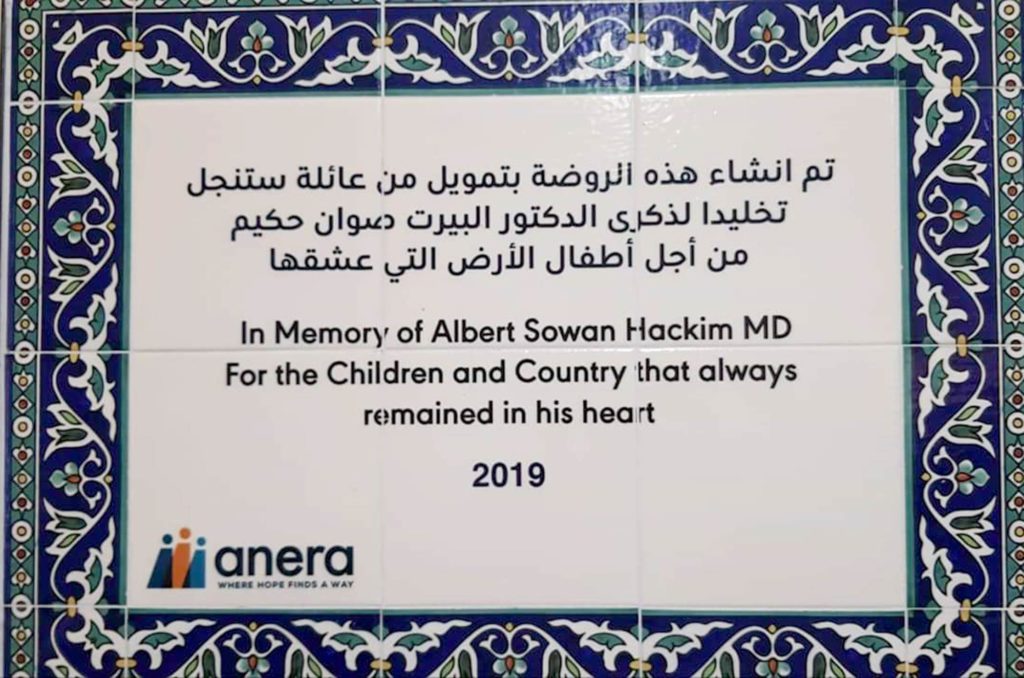

Everyone we met associated with Anera was remarkable. They are amazing people who are making things happen against significant odds.
We also visited Nablus, Jerusalem and Ramallah—and, of course, we went to the towns where my family comes from, Nazareth and Acre. Of all the places we visited, those were the saddest to me, as they are so clearly suffering and run-down. You’d expect that Nazareth would be a hot spot for tourism, but the souk felt sleepy and abandoned.
At the end of the day, Palestinians just want to live with dignity and humanity. They just want to be able to live their lives like everyone else and be free to be who they are.
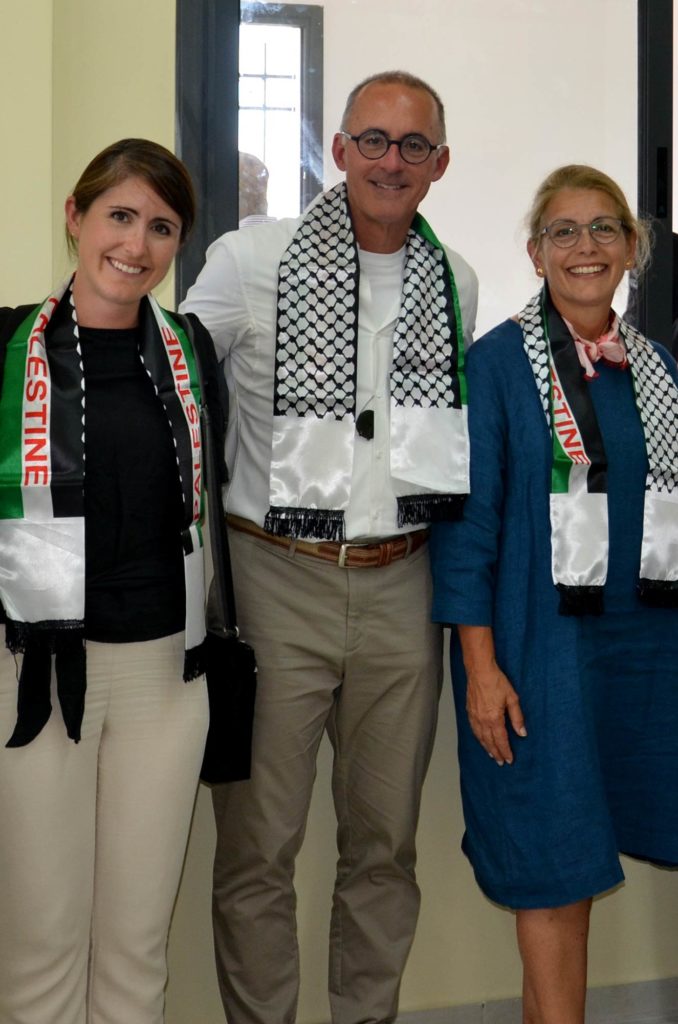

OUR BLOG
Related
In this log, Anera provides updates on unfolding war in Palestine and our response. In some cases, additional activities may be added retroactively to the daily entries as we receive additional program reporting. Questions? See our FAQ page July 10,…
